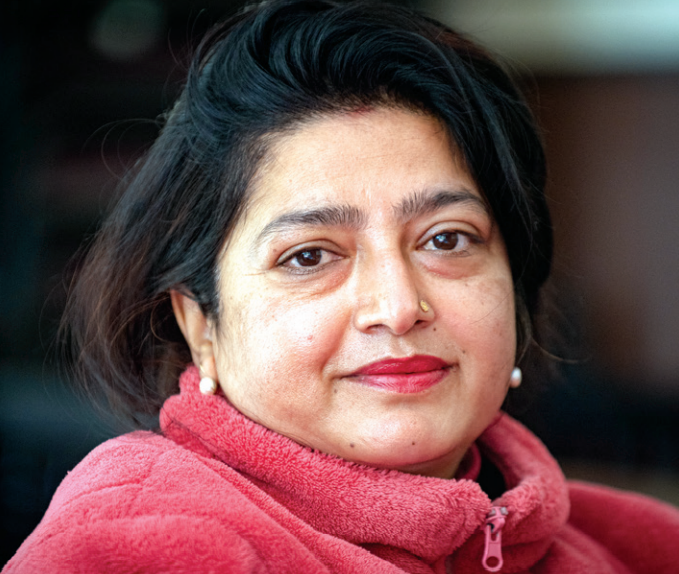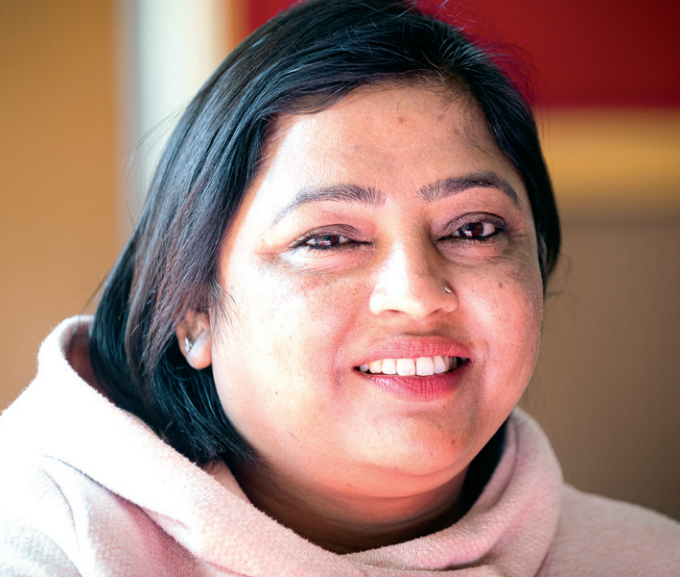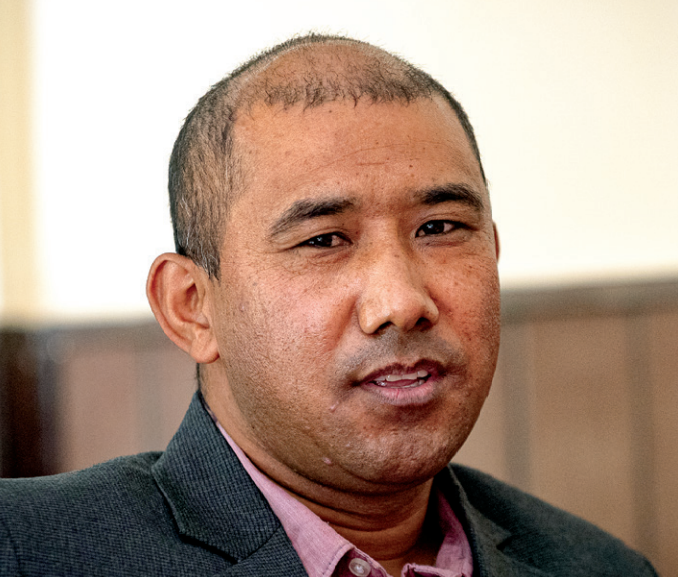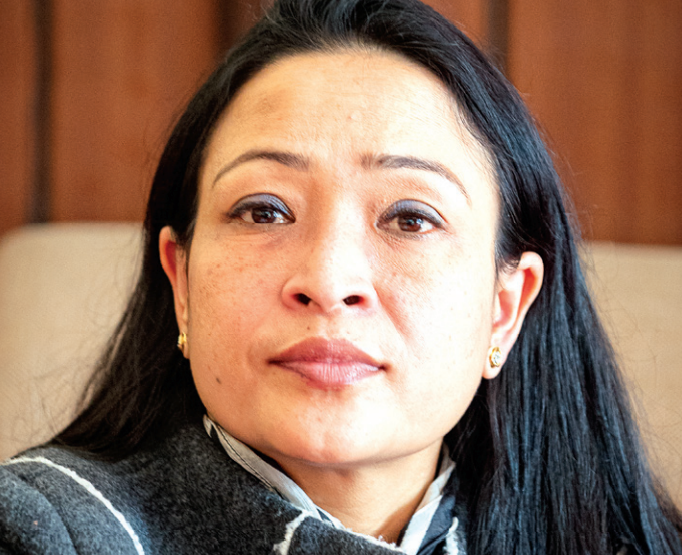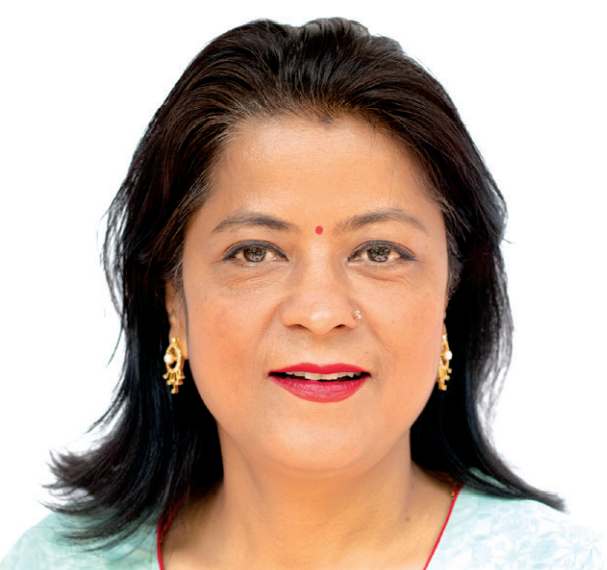Every disability is different. But all its variants hinder functionality, in one or the other way. While some disabilities might be visible, others that affect cognitive or learning abilities are called ‘invisible’. Nepal is still a long way from addressing the issues of persons with disability (PWD), mainly due to lack of coordination between different government agencies.
Representation is another issue that needs to be addressed. Although political parties have quotas for people with disabilities, discrimination against them continues: those getting the benefits are mostly the kith and kin of influential politicians. Though PWDs get identity cards, there is no census or a proper system for their documentation. Disability is still socially stigmatized, preventing parents and people in general from freely talking.
ApEx recently organized a roundtable on the topic with the objective of understanding the basics: the most common forms of disabilities in Nepal and the problems the sufferers face. Here are excerpts.
Rama Dhakal, Vice president, National Federation of the Disabled Nepal
Those like me with physical disabilities are at least visible and the media take up our issues to an extent, but those with invisible disabilities seldom get the needed exposure. Yet the biggest issue for all of us continues to be lack of inclusion in policy making. Political parties have ignored the essence of the constitution and misused PWD quotas by nominating their yes-men—those who don’t even consider themselves PWD. If people representing us can’t make it to the decision-making level, no one is going to advocate on our behalf and our issues will continue to be sidelined. Besides our mental, physical, and financial difficulties, lack of concern being shown by our political stakeholders is also a huge problem. This was also reflected in the recently concluded general conventions of major parties, where the issues of the PWD were completely sidelined.
Also read: ApEx roundtable: Mental health, youth and the pandemic
Devi Acharya, Chairman, Nepal Spinal Cord Injury Sports Association
A spinal cord injury (SCI) is a physical and visible injury, resulting in loss of functions such as mobility and feeling. Around 70 percent of SCI cases are the result of accidents at home like falling from trees or cliffs. A series of things should be done to stabilize an SCI victim, to be carried about step by step. That is an issue. There are hardly any professionals to assist disabled people in hospitals or disabled children in schools. Our hospitals lack even basic medical facilities for them. It takes hours or at times even days for a PWD to reach the hospital. Besides, we don’t have proper rehabilitation equipment, and the professional help needed to diagnose and treat SCI patients is inadequate as well.
Lakpa Norbu Sherpa, Chairman, Society of Deaf-blind Parents
Deaf-blindness is a combination of sight and hearing loss that affects a person’s ability to communicate, access information, and move around. Among different forms of disabilities, deaf-blindness is among the more severe one. My son has deaf-blindness and either my wife or me have to be with him all the time. People with this disability have no access to education, transport, and other daily needs. We, caretakers, are ignored by the government, and nor can we go outside our homes for advocacy. So we have been deprived of our shares of allowances and facilities.
I sometimes feel people with minor disabilities have suppressed our issues. Alongside, the concerned stakeholders have not been able to create an environment for an inclusive school where students with any disability can attend. If we could send our children to such schools, perhaps they could feel like other regular kids, which is also important for their sound mental health.
Also read: No political party for Nepalis with disabilities
Dr Sunita Maleku Amatya, Chairperson, Autismcare Nepal Society
My son has autism, which means he has difficulties in social interactions due to his repetitive patterns of thought and behaviors. This is referred to as a developmental disorder of variable severity. It is important to diagnose it early to cope with it the best possible way. In developed countries, the newborn are tested for the functionality of their organs and treated in case a disability is found. Unfortunately, our health service has no such mechanism for screening, delaying diagnosis. Problems are compounded by lack of further treatment and services, even though timely recognition and treatment could minimize the damages. Moreover, caretakers have a huge role in the life of PWD. Mental health of the caretakers should be prioritized and they should be recognized, appreciated and made more visible.
Shila Thapa, President, Down Syndrome Society of Nepal
Down syndrome is a condition in which a child is born with an extra copy of their 21st chromosome, resulting in physical and mental developmental delays and disabilities. But they can still live a healthy and fulfilling life. My son has this condition. What each stakeholder should know is people with Down can be valuable employees and are also ready to work, but often lack training and opportunity. The government has not done anything to help them be more independent. Nor has it financially supported the guardians of children with Down. The current government monthly allowances are peanuts. So the problems with all kinds of disabilities can be alleviated with due attention of policymakers as well as greater social awareness.


